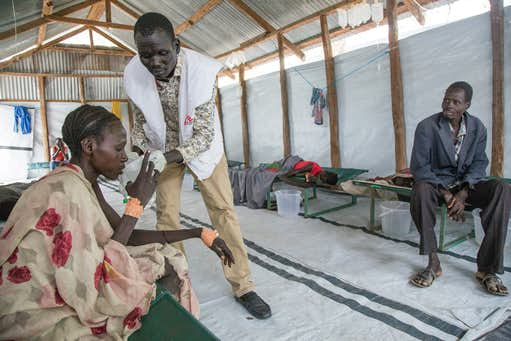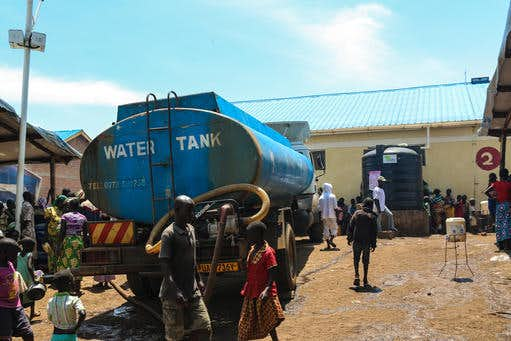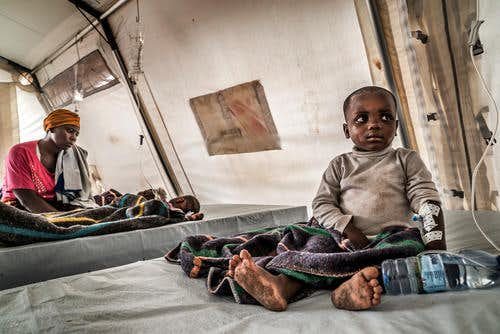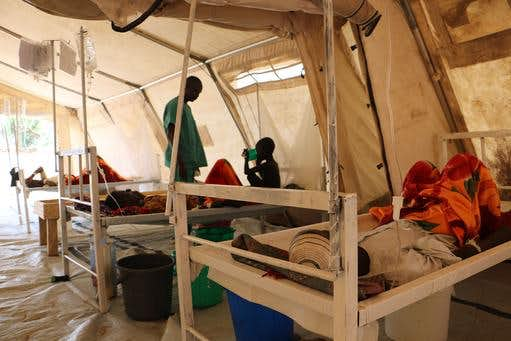Although easy to prevent and treat, cholera affects up to 4 million people worldwide per year, resulting in up to 140,000 deaths.
Caused by a water-borne bacterial infection, cholera is transmitted through contaminated food or water, or through contact with fecal matter or vomit from infected people. A patient can lose up to 25 litres of fluid per day. Cholera can cause severe diarrhoea and vomiting, and rapidly prove fatal, within hours, if not treated. But cholera is very simple to treat – most patients respond well to oral rehydration salts, which are easy to administer. In more serious cases, intravenous fluids are required. Ultimately, no-one should die of cholera – yet well over 100,000 do each year.

Outbreaks can rapidly spread in over-crowded communities and in dense living conditions when there is inadequate access to clean water, waste collection, and proper toilets. Because of population displacement, destruction of infrastructure, or a lack of public services, cholera is a serious risk in the aftermath of a natural disaster or during a conflict. The situation can be especially problematic in rainy seasons when houses and latrines flood and contaminated water collects in stagnant pools.
Cholera is relatively simple to treat in most cases, with people with mild to moderate forms usually able to recover through treatment with fluids and oral rehydration salts, which are easy to administer. People who are severely dehydrated may need intravenous fluids and hospitalisation. In these cases, they should be admitted to a Cholera Treatment Centre (CTC). Without treatment, the mortality rate can reach 50 per cent; with adequate care, it’s less than 2 per cent.


Cholera occurs in areas with poor access to sanitation and unsafe drinking water – so providing people with clean drinking water and proper sanitation facilities is vital to preventing and curbing any outbreaks. Our WATSAN (water and sanitation) teams provide people with sachets to purify water, truck clean water in, and install, fix and clean out sanitation facilities such as toilets in affected areas. Informing people about good hygiene practices such as washing hands, using clean toilets, and using only clean water to drink and wash food, can also curb outbreaks of the disease.
While oral vaccines have proven effective in preventing cholera during outbreaks, current two-dose strategies are logistically challenging to implement during emergencies. But we know from previous experience and scientific evidence that a one-dose oral cholera vaccine strategy is not only safe and easy to implement, but can also prevent or reduce the transmission of the disease during an epidemic.


A rapid response is vital to containing the spread of a cholera outbreak. Quickly putting in place health promotion activities – educating people about how to help to limit the spread – plus water and sanitation activities, establishing treatment centres and vaccinating in an emergency response can help limit how far an epidemic spreads and reduce the number of people who fall sick or die.
A rapid response is vital to containing the spread of a cholera outbreak. Quickly putting in place health promotion activities – educating people about how to help to limit the spread – plus water and sanitation activities, establishing treatment centres and vaccinating in an emergency response can help limit how far an epidemic spreads and reduce the number of people who fall sick or die.







